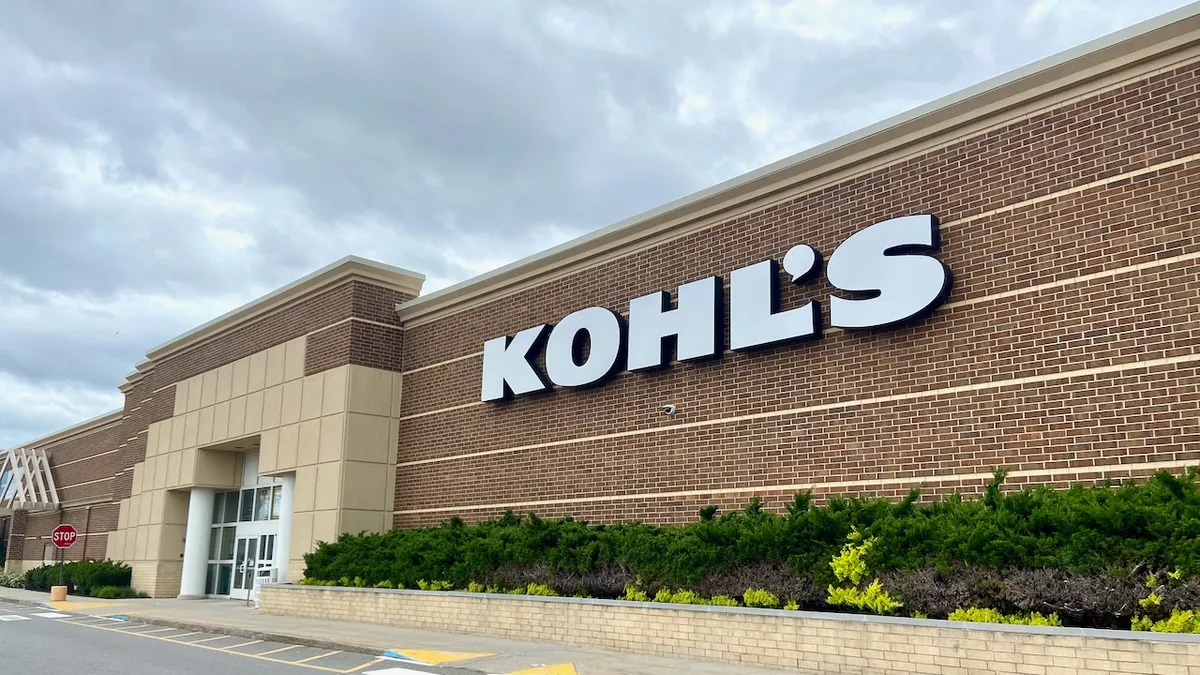Dive Brief:
- Kohl’s has made progress in its campaign to rein in stock levels, with inventories down nearly 14% YoY to $3.5 billion in Q2, the company said.
- The drop in inventory was better than the company planned, as was Kohl’s operating margin of more than 4%, Kohl’s CEO Tom Kingsbury told analysts on the company’s Q2 earnings call last week.
- “As we implement new planning and allocation processes, we're becoming more responsive to the customer's demand, operating with additional open-to-buy to chase trends and minimize risk, maintaining better in stock levels in core basics, and improving inventory flow from our distribution centers to the selling floor,” Kingsbury said.
Dive Insight:
Inventory was the bane of Kohl’s year in 2022. In March, Kingsbury described levels as “out of control” and announced an initiative to make speedy, deep cuts to stock levels to avoid the plague of discounting that had battered profits last year.
Kingsbury spent “significant amount of time focused on merchandising, including establishing stronger inventory control processes,” during his first three months in the chief slot, he said.
The retailer’s aggressive, ahead-of-schedule inventory reductions represented significant progress toward those goals. “We were able to clean up what we needed to,” CFO Jill Timm said on the Q2 call, adding that “a lot of the efforts and disciplines that Tom has instilled in the merchant organization really took hold quicker than we anticipated.”
Lower inventory levels also saved the retailer on wage costs, with less labor needed to process product, as well as on logistics expenses, Timm noted.
Reducing stocks isn’t the sole focus of the retailer’s efforts to revamp its inventory management. Kohl’s management also wants to keep buying budgets open to respond quickly to trends and the kinds of inventory that happens to be selling well in the moment.
Kingsbury pointed to categories like wall art, glassware, botanical storage and lighting, as well as home décor, where “we are forming new vendor partnerships, building inventory with market buy on a weekly basis,” he said.
Analyst teams — including at Telsey Advisory Group, TD Cowen and GlobalData — called out Kohl’s inventory management as positives in a quarter that also brought declines in sales and profits as consumer spending remains under pressure.














